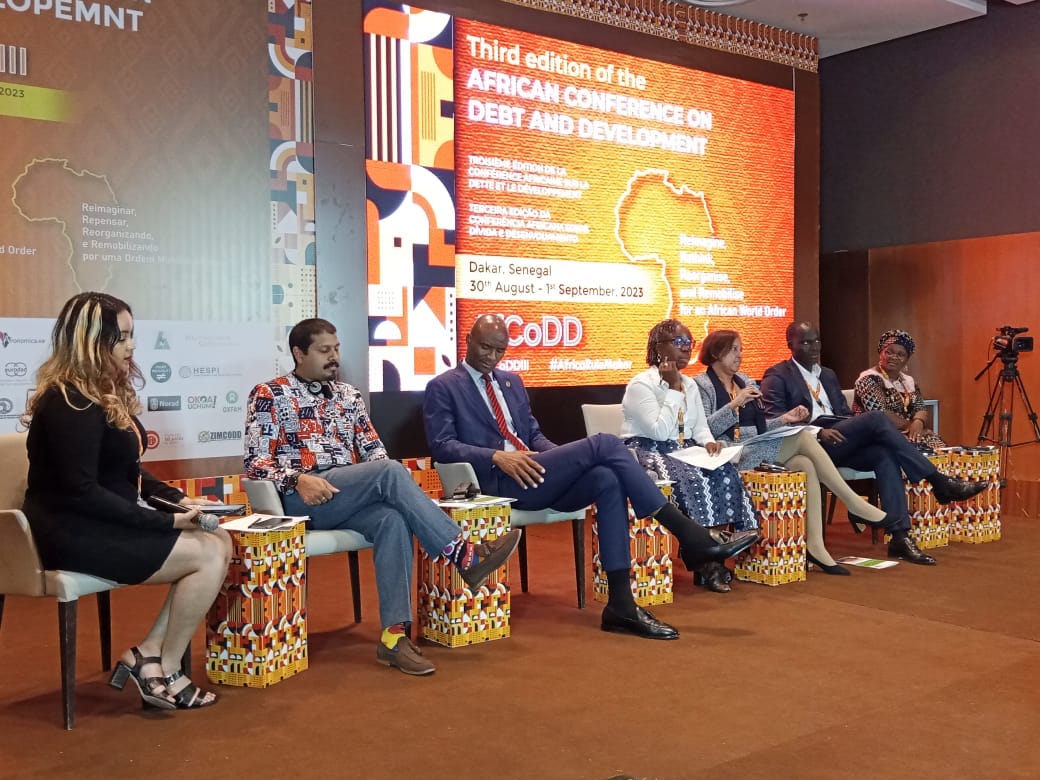AfCoDD III: Dr. Patrick Ndzana Olomo Shares Insights on African Development
DAKAR, Senegal— Amid the vibrant discussions at the 3rd African Conference on Debt and Development (AfCoDD III) in Dakar, Senegal, Winston Mwale, AfricaBrief Editor-in-Chief, had the opportunity to interview Dr. Patrick Ndzana Olomo, the head of Economic Policy and Research at the African Union Commission.
Winston Mwale (WM): Dr. Olomo, before we delve into the sessions you took part in, could you provide an overview of the importance of this event in Senegal?
Dr. Patrick Ndzana Olomo (PN): The African Conference on Debt and Development, now in its third edition, is a critical continental platform. It gathers African stakeholders and citizens to discuss and share experiences on how the continent can address its development challenges effectively.
This year, our discussions are more crucial than ever due to the ongoing COVID-19 pandemic, global geopolitical shifts, and the pressing issue of climate change. AfCoDD offers us the platform to unite our voices in addressing these challenges.
WM: During your session, several key issues were raised. Could you highlight some of the major ones?
PN: Certainly, the key issues emphasized during the session revolved around economic transformation and responsible debt management. Economic transformation is pivotal for us because it enables us to harness the potential of the African Continental Free Trade Area (AfCFTA).
With 1.3 billion people and a combined GDP of $4.3 trillion, we are a continent of immense potential. In the next two decades, our population is expected to reach 2.7 billion, with a GDP ranging from $15 to $20 trillion.
To seize this opportunity, we must focus on productive transformations in agriculture, industry, and services.
WM: You mentioned responsible debt management. Could you elaborate on that?
PN: Certainly. Debt should not be used to address short-term issues but rather to unlock our continent's potential through structural improvements.
We need to redirect our resources toward addressing structural issues, fostering productive transformation, reducing inequalities, and alleviating poverty.
This conference has emphasized the importance of dealing with internal issues before engaging in global discussions.
We must align our institutions with our development goals and ensure that they are capable of mobilizing and channelling resources effectively.
WM: Many have noted that while Africa has no shortage of policies and plans, implementation remains a challenge. What's your perspective on this?
PN: Implementation is indeed where we often fall short. We have numerous policies and development plans, but their effective execution is often lacking.
For instance, we were supposed to create financial institutions like the African Central Bank, the African Monetary Fund, and the African Investment Bank, as per the Abuja Treaty.
However, we have yet to fully implement these crucial institutions. Before discussing the reform of global financial architecture, we need to reform our African financial institutions.
Africans bear the responsibility of designing and implementing these reforms to unlock the continent's potential.
The interview with Dr. Olomo shed light on the significance of AfCoDD III and the urgency of implementing policies to drive African development.
It underscored the need for responsible debt management and internal reform as Africa seeks to harness its vast potential on the global stage.
Below is the rest of the interview:




